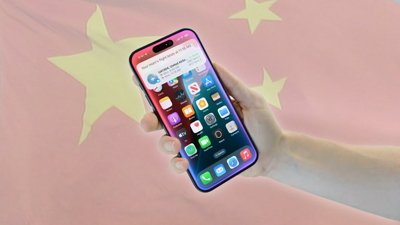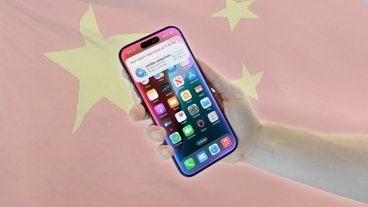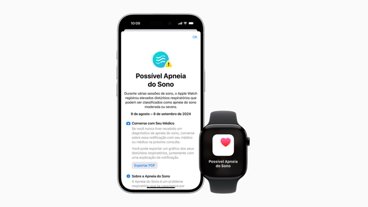Apple SVP of Worldwide Marketing Phil Schiller in an interview this week said the company has no plans to walk back scrutiny of Basecamp's Hey email app, noting the software must comply with all App Store guidelines in order to be offered on the storefront.
Speaking with TechCrunch, Schiller said Apple is not contemplating an exception for Hey despite Basecamp's pleas.
"Sitting here today, there's not any changes to the rules that we are considering," Schiller said. "There are many things that they could do to make the app work within the rules that we have. We would love for them to do that."
According to Basecamp founders David Heinemeier Hansson and Jason Fried, Apple initially approved Hey on Monday, but later denied necessary updates because the app failed to offer an in-app purchase option for full access to platform services. As it stands, the Hey app can be downloaded from the App Store, though the software requires activation. Users must first pay a $99 fee on the Hey website, a subscription that is not offered in-app.
That Hey is non-functional out of the box is one reason why Apple requires developers to include in-app purchase options, according to Schiller.
"You download the app and it doesn't work, that's not what we want on the store," he said.
Apple does allow certain "reader" apps, or software that displays previously purchased outside content like videos and music, to operate without payment as long as developers don't urge users to conduct transactions outside of the App Store. Client apps marketed as business services, like Basecamp, are also allowed onto the App Store. Hey does not fit either benchmark.
"Email is not and has never been an exception included in this rule," Schiller said.
The decision to reject Hey's critical updates and threaten to pull it from the App Store has kicked up controversy ahead of Apple's Worldwide Developers Conference slated to begin next week. Apple also faces an EU antitrust probe regarding overbearing App Store policies.
Hey's ordeal casts doubt on Apple's motives. Some argue the tech giant is not working to better the customer experience, but is instead chasing its customary cut of App Store purchases. Apple charges developers 15% to 30% depending on purchase type.
"I get why there's a question here," Schiller said. "But that's not what we're doing."
The executive argues App Store guidelines are in place to ensure consistency, which leads to consumer satisfaction.
Schiller noted a variety of fixes Hey can implement to fall in line with App Store rules, including offering users free and paid versions of the app, an RSS-style app that can be upgraded with an outside charge, and a free app that can be upgraded with an in-app purchase.
Hey does not appear to be backing down in the face of intense pressure from Apple.
"There is never in a million years a way that I am paying Apple a third of our revenues," Heinemeier Hansson told Protocol in an interview this week.
Apple provided TechCrunch with the rejection letter it sent to Hey:
Hello Jason,We are writing to let you know the appeal results for your app, HEY Email.
The App Review Board evaluated your app and determined that the rejection was valid. Your app does not comply with the App Store Review Guidelines detailed below. As you are aware, this is the reason your Hey Email app was rejected when it was submitted to the Mac App Store on June 11, 2020.
The HEY Email app is marketed as an email app on the App Store, but when users download your app, it does not work. Users cannot use the app to access email or perform any useful function until after they go to the Basecamp website for Hey Email and purchase a license to use the HEY Email app. This violates the following App Store Review Guidelines:
Guideline 3.1.1 - Business - Payments - In-App Purchase
If you want to unlock features or functionality within your app, you must use in-app purchase. Your app requires customers to purchase content, subscriptions, or features outside of the app, but those items are not available as in-app purchases within the app as required by the App Store Review Guidelines.
Guideline 3.1.3(a) - Business - Payments - "Reader" Apps
Reader apps may allow users to access previously purchased content and content subscriptions. Your mail app is not one of the content types allowed under this guideline for "Reader" apps (specifically: magazines, newspapers, books, audio, music, video, access to professional databases, VOIP, cloud storage, or approved services such as classroom management apps). Therefore, customers must be given the option to purchase access to features or functionality in your app using in-app purchase.
Guideline 3.1.3(b) - Business - Payments - Multiplatform Services
Apps that operate services across multiple platforms may allow users to access content, subscriptions, or features they have acquired in your app on other platforms or on your website, provided those items are also available as in-app purchases within the app. Your HEY Email app does not offer access to content, subscriptions, or features as in-app purchases within the app. In fact, the app does not function as an email app or for any purpose until the user goes to the Basecamp Hey Email website to start a free trial or purchase a separate license to use the app for its intended purpose.
Next Steps
To resolve this issue, please revise your app such that it does not violate any of the App Store Review Guidelines and terms.
There are a number of ways that you could revise your app or service to adhere to the App Store Review Guidelines. Customers who have previously purchased access to content, subscriptions, or features elsewhere may continue to access these items in your app, as long as new iOS customers are given the option to purchase access using in-app purchase as required by the App Store Review Guidelines.
If you would prefer not to offer users the option of in-app purchases, you could consider having the app function as marketed — an email client that works with standard IMAP and POP email accounts, where customers can optionally configure the Hey Email service as their preferred email service provider. This would allow the app to function as an email client without requiring an additional payment to use its features and functionality. Under this approach, what you sell on your website is clearly an email service separate from the function of your app as distributed on the App Store.
We are here as a resource as you explore these or other ideas to bring the Hey Email app within compliance of the App Store Review Guidelines and terms.
Thank you for being an iOS app developer. We understand that Basecamp has developed a number of apps and many subsequent versions for the App Store for many years, and that the App Store has distributed millions of these apps to iOS users. These apps do not offer in-app purchase — and, consequently, have not contributed any revenue to the App Store over the last eight years. We are happy to continue to support you in your app business and offer you the solutions to provide your services for free — so long as you follow and respect the same App Store Review Guidelines and terms that all developers must follow.
We hope to assist you in offering the Hey Email app on the App Store.
Sincerely,
App Review Board
 AppleInsider Staff
AppleInsider Staff







-m.jpg)






 Andrew Orr
Andrew Orr
 Thomas Sibilly
Thomas Sibilly
 Christine McKee
Christine McKee
 Andrew O'Hara
Andrew O'Hara
 Malcolm Owen
Malcolm Owen
 William Gallagher
William Gallagher

 Sponsored Content
Sponsored Content







52 Comments
Based on what I see in this article, I have to side with Apple. If the app does nothing unless you pay, then it falls under the category of “an app with no function”. If it’s an email app, then it should be able to be used as such. Like the Outlook app. It’s able to use any email service, not just the 365 provider. So in the case of Hey, yeah, they need to make adjustments.
If you don’t like it, then develop solely for android. If you want your product in Apple’s App Store, then you follow the rules, like everyone else.
An app that doesn’t work after downlading is the most common reason of furious user comments. The users always expect immediate functionality since they are allowed to download something: “If I must buy it to make it functional then sell it to me right now, or don’t waste my time and my expensive bandwith!” Even the most honest and legitimate demo / limited versions are not tolerated by users, just look at the user comments.
Are the executives all millennials or something?
I don’t get how they feel entitled to be exempted from the rules.
“There is never in a million years a way that I am paying Apple a third of our revenues,” seems to translate to, “There is never in a million years a way that I am letting Apple Pay us all the money we would earn from having the App available for iOS.”